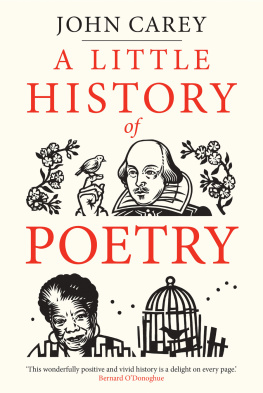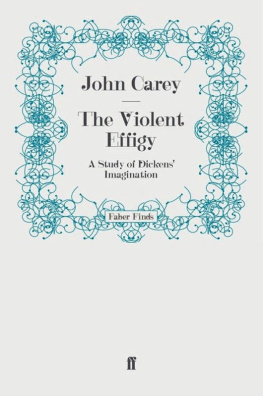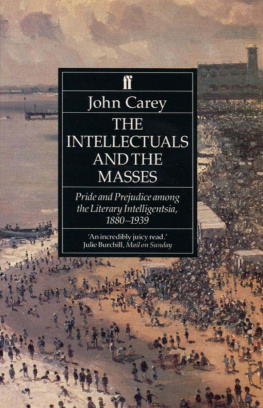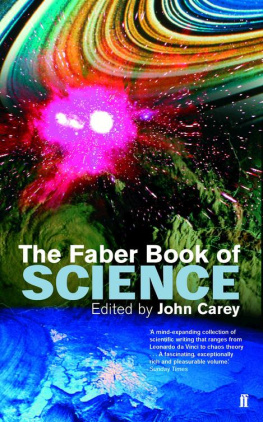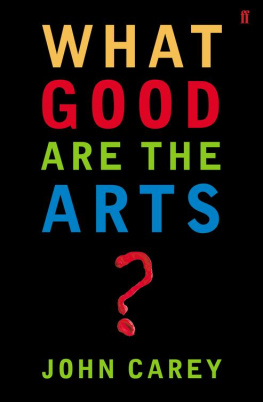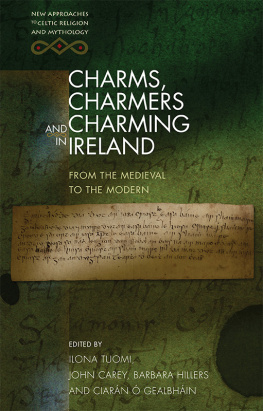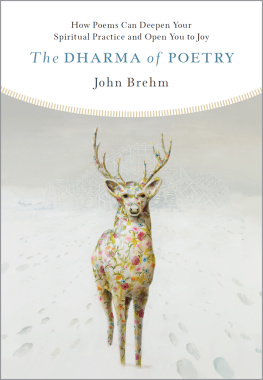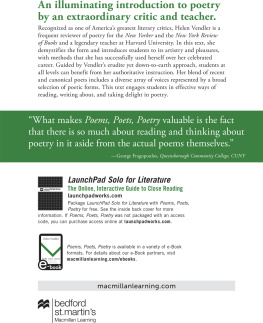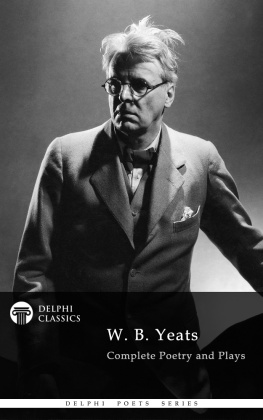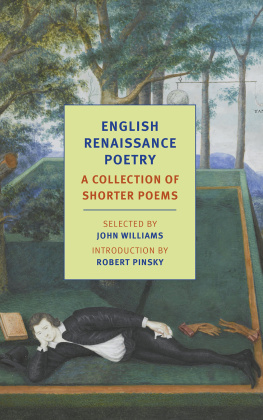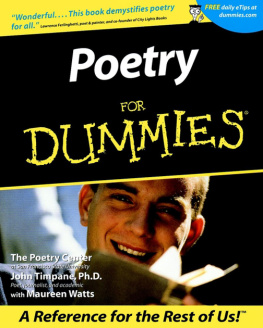A LITTLE HISTORY OF POETRY

Copyright 2020 John Carey
All rights reserved. This book may not be reproduced in whole or in part, in any form (beyond that copying permitted by Sections 107 and 108 of the U.S. Copyright Law and except by reviewers for the public press) without written permission from the publishers.
For information about this and other Yale University Press publications, please contact:
U.S. Office:
Europe Office:
Set in Minion Pro by IDSUK (DataConnection) Ltd
Printed in Great Britain by TJ International Ltd, Padstow, Cornwall
Library of Congress Control Number: 2019956794
ISBN 978-0-300-23222-6
A catalogue record for this book is available from the British Library.
10 9 8 7 6 5 4 3 2 1
Contents
CHAPTER 1

Gods, Heroes and Monsters
T HE E PIC OF G ILGAMESH
W hat is poetry? Poetry relates to language as music relates to noise. It is language made special, so that it will be remembered and valued. It does not always work, of course. Over the centuries countless thousands of poems have been forgotten. This is a book about some that have not.
The oldest surviving literary work is The Epic of Gilgamesh. It was composed nearly 4,000 years ago in ancient Mesopotamia (roughly equivalent to where Iraq and eastern Syria are now). No one knows who wrote it, or why, or what readership or audience it was intended for. It is preserved on clay tablets in the earliest known alphabet, which is called cuneiform script because the scribes who wrote it formed the letters by making wedge-shaped (cuneiform) dents in wet clay with bits of reed.
For centuries the secret of how to read cuneiform script was lost. Then, in the 1870s, a self-taught, working-class Londoner called George Smith, studying clay tablets in the British Museum, cracked the code and brought The Epic of Gilgamesh to light.
The epic tells the story of a king, Gilgamesh, whose mother is a goddess. He rules the city of Uruk (now Warka in southern Iraq). He is a great warrior and builds a magnificent city using glazed bricks, a new technique. But he is lustful and tyrannical, seizing and violating brides on their wedding day. So the gods create a wild man called Enkidu to stop Gilgamesh oppressing his people.
Enkidu is made from the clay the mother goddess washes from her hands, and he is an animal rather than a human. He is covered in hair and lives with the gazelles, eating grass as they do. However, a votaress of the temple in Uruk seduces him and after seven days and nights of fervent love-making he becomes human. She teaches him to wear clothes and eat human food.
Gilgamesh falls in love with Enkidu, caressing him like a woman. But when Enkidu tries to stop him violating brides, they fight. They turn out to be equally matched, so they kiss and make friends and embark on heroic adventures. Together they go on a quest to the Cedar Forest and kill the monster Humbaba who lives there. This angers the gods, since Humbaba was their monster. While Gilgamesh is washing after the fight the goddess Ishtar sees him, falls in love, and proposes marriage. But she is the goddess of sex and violence and all her lovers come to a bad end, so Gilgamesh rejects her. She is angry, and calls on her father, the sky god, to send another monster, the Bull of Heaven, to kill Gilgamesh. Instead Gilgamesh and Enkidu kill the Bull, which angers the gods still more, and they sentence Enkidu to death.
Gilgamesh mourns him bitterly and sets off to discover the secret of eternal life. He is ferried across the waters of death and finds the immortal man Utnapishtim, who survived the great flood, in which all other humans died, by following the gods instructions and building a boat. Gilgamesh dives into the ocean to find a plant that is said to make whoever possesses it young again. Though he finds it, and brings it to the surface, it is stolen by a snake, and Utnapishtim tells him that no one can defeat death. So Gilgamesh returns to Uruk, having learned that, though he is mighty and famous, he will be equal in death with all other human beings.
There are clear parallels between The Epic of Gilgamesh and Homers Odyssey. This may be the result of direct influence, or because some elements in the Gilgamesh story are common in myth and folklore worldwide. In many mythologies and religions gods favour or victimise human heroes, and human heroes fight with monsters and descend into the underworld, the realm of death, and then return to the living world. Through Homer, these motifs have become part of Western poetrys imaginative universe.
It is not clear that The Epic of Gilgamesh was thought of as poetry in our sense of the word. It may have been thought a true account of the gods and their relation to humans. In Gilgamesh there is a chief god called Marduk, but there are many other gods and they quarrel, get drunk and make mistakes. They originally made humans immortal, but then they invented death, sending the flood to destroy the human race (except Utnapishtim), because they were noisy and kept the gods awake.
Did this strange story have any effect on the development of modern beliefs and traditions? Possibly. In 597 BC Judah was conquered by Nebuchadnezzar, king of Babylon, and its people were taken into captivity. Their exile is recalled in Psalm 137, By the waters of Babylon we sat down and wept, when we remembered Sion. For more than fifty years the people of Judah had to live in subservience to the triumphant Babylonians, and hear about their strange gods. But in 539 BC the Persians conquered Babylon, and the freed Jewish captives returned to Judah. It seems they then set about amalgamating their legends into a sacred book, the Torah, consisting of the first five books of what is now called the Old Testament. They tried, it seems, to keep their legends untainted by the Babylonian beliefs they had lived among. But the flood that destroys mankind in the Book of Genesis and the snake that tricks Eve in Eden may derive from the flood and snake in Gilgamesh.
Most importantly, the Torah asserts that Yahweh, all-powerful and all-knowing, is the only true God, and all other gods, like those of Babylon, are false. This major change brought problems. For if God is all-powerful and all-knowing, why is the world full of misery and suffering? Why didnt God make things better? This problem has been exercising the minds of theologians for centuries, and different religions have different answers.
In the Torah, man is to blame for the state of the fallen world with its misery and suffering, because Adam ate the apple, although God had warned him that if he ate it he would die. In Christianity this explanation is accepted, though usually with modifications that make the Adam and Eve episode a story, or allegory, rather than literal truth. But Christianity adds an extension to the story, which is that God sent his son, Jesus Christ, to redeem humankind by dying on the cross, so that all who believe in him will have immortal life.
A different answer to the problem of human suffering is found in some Eastern religions and relates to the idea of karma, according to which an individuals good deeds and intentions lead to happiness, evil deeds and intentions to suffering. In many Indian religions, including Hinduism, Buddhism, Jainism and Sikhism, karma is linked to a belief in rebirth, and ones deeds and intentions in this life affect the nature and quality of ones future lives. Being born blind, for example, may be the result of sins in a previous life. The Abrahamic religions (Judaism, Christianity and Islam) do not have the concept of rebirth, so this solution to the problem of divine justice is not open to them. But in the Hindu scripture, the Bhagavad Gita, Lord Krishna teaches that every creature in the universe is subject to rebirth.
Next page
